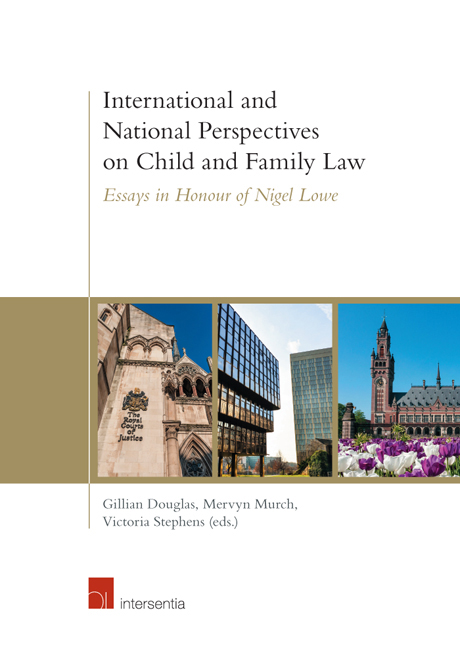Book contents
- Frontmatter
- Foreword
- Acknowledgements
- Contents
- List of Cases
- List of Contributors
- Introduction: Nigel Vaughan Lowe: An Appreciation
- Part I Family and Child Law in England and Wales
- Part II International Family Law
- Part III The Future for Family and Child Law
- The Hague Child Abduction Convention in a Changing World
- Using Research to Improve Outcomes for Abducted Children
Using Research to Improve Outcomes for Abducted Children
from Part III - The Future for Family and Child Law
Published online by Cambridge University Press: 12 October 2018
- Frontmatter
- Foreword
- Acknowledgements
- Contents
- List of Cases
- List of Contributors
- Introduction: Nigel Vaughan Lowe: An Appreciation
- Part I Family and Child Law in England and Wales
- Part II International Family Law
- Part III The Future for Family and Child Law
- The Hague Child Abduction Convention in a Changing World
- Using Research to Improve Outcomes for Abducted Children
Summary
INTRODUCTION
In August 2009 the Right Honourable Lord Justice Thorpe, then Head of International Family Justice for England and Wales, hosted the International Family Justice Judicial Conference for Common Law and Commonwealth Jurisdictions at Cumberland Lodge, Windsor, England. This included an aft ernoon session devoted to international relocation, which had become one of the most controversial and difficult issues in family law internationally – and of increasing concern due to the rise in cross-border relationships and international mobility. At that time, empirical studies on relocation disputes following parental separation had been undertaken in Australia, New Zealand and England and Wales, and members of each research team were invited to present their respective research findings at the Conference to help inform the discussion. This was the first time we (Nicola and Marilyn) met in person; our previous exchanges having been undertaken via email. So it was with some excitement, and a great many thanks to Professor Nigel Lowe – a leading figure at the Conference – that our individual efforts on relocation were recognised and a new working relationship forged between us. Professor Lowe and Dr. William Duncan, then First Secretary of the Permanent Bureau at The Hague, invited us to collaborate on a joint presentation and written paper reviewing the international research evidence on relocation for the forthcoming International Judicial Conference on Cross-Border Family Relocation. This Conference, attended by 50 judges and experts, was held in Washington DC, in March 2010. Our paper was one of the few reviews at the time of the empirical evidence on mobility and relocation and underpinned the Washington Declaration on International Family Relocation that resulted from the Conference. Our paper was subsequently published in the Family Law Quarterly.
Professor Lowe's kick-starting of our collaborative work on relocation – the lawful means by which separated parents seek to relocate with their children – inevitably led onto our consideration of international child abduction; the unlawful means by which some separated parents choose to ‘relocate’ with their children. As flipsides of the same coin, it has been important to us to consider the nexus between relocation and abduction.
- Type
- Chapter
- Information
- International and National Perspectives on Child and Family LawEssays in Honour of Nigel Lowe, pp. 329 - 342Publisher: IntersentiaPrint publication year: 2018



